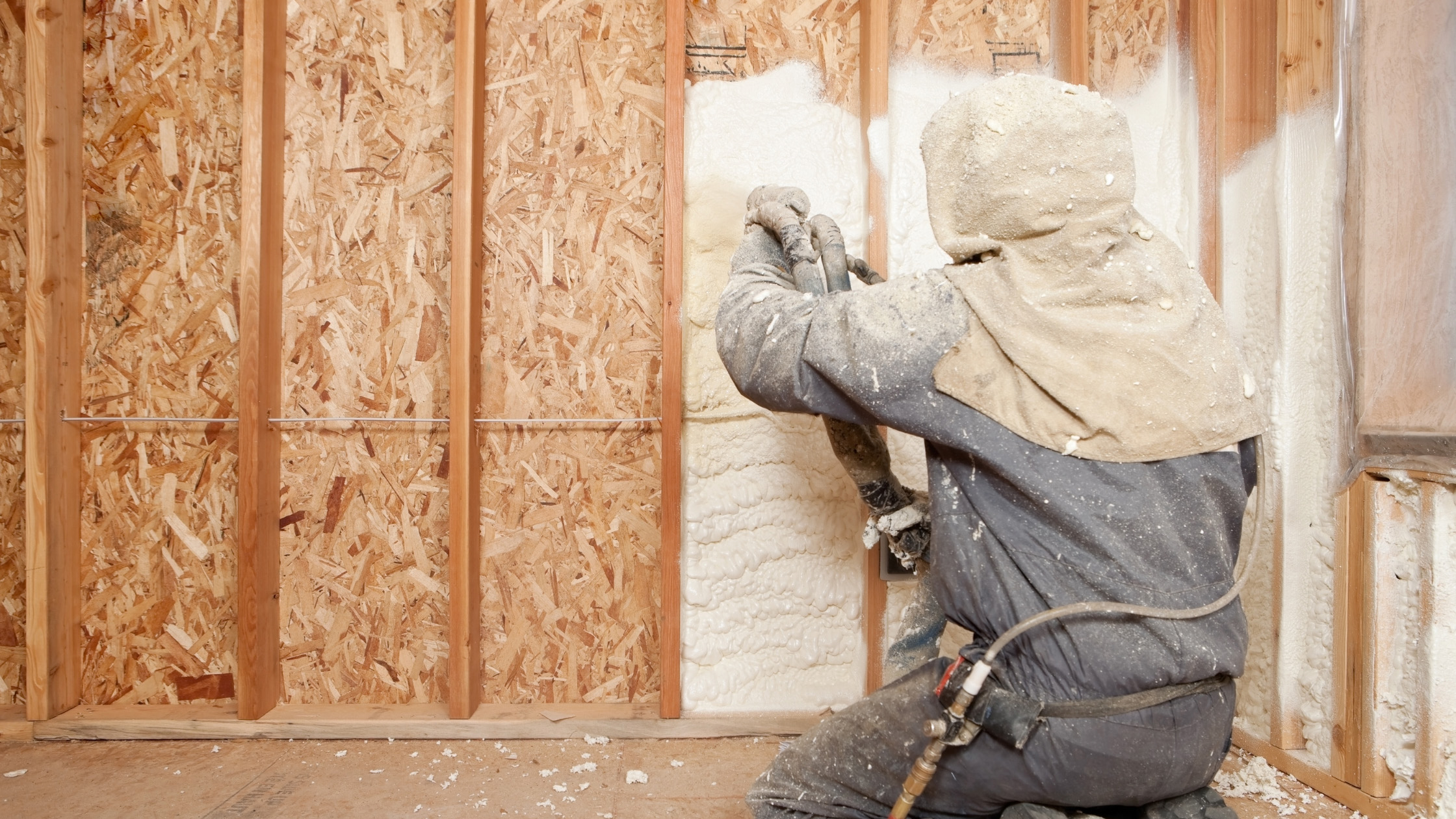When it’s time to do home updates, most homeowners think of doing these jobs themselves, but this could be a huge mistake.
If you’re considering using a DIY spray foam kit to insulate your home, you need to be aware of the dangers. Applying spray foam insulation yourself is a considerable risk. If not done correctly, you could end up with several problems, including fire hazards, health risks, and insulation failure.
Let’s talk about the dangers of DIY spray foam kits and why you should hire a professional instead.
What is Spray Foam Insulation, and How Does it Work?
Spray foam insulation is a type of insulation that expands when sprayed onto a surface. The expanding foam helps seal and fill in any gaps or cracks, providing an effective barrier against heat loss. Because spray foam insulation can be applied directly to various surfaces, it is a popular choice for both new construction and retrofit projects.
Different Types of Insulation
There are several types of insulation available to choose from, each with advantages and disadvantages.
Fiberglass Insulation
The most frequently used type of insulation is fiberglass, which is made from melted glass that is spun into a fine fiber. Fiberglass is an effective insulator, fire retardant, and relatively inexpensive, but it can be challenging to install and irritate the skin.
Cellulose Insulation
Another popular choice is cellulose, which is made from recycled paper products. Cellulose is also effective at insulating against heat and cold, but it settles over time and can be a fire hazard if not installed correctly. A special blowing agent is used to install it.
Rigid Foam Board insulation
Another option is rigid foam board. Rigid foam board is made from various materials, including polystyrene and polyurethane. Foam board is easy to install and provides excellent insulation, but it is more expensive than fiberglass and cellulose.
Spray Foam Insulation
A final option is spray foam, made from chemicals that expand to fill any gaps or cracks in the walls. They come in open cell and closed cell spray foam options. Open-cell foam is less expensive but does not provide as much insulation and allows more air leakage than closed-cell foam. Closed-cell foam is more expensive but provides better insulation and can also act as a moisture and air barrier.
Why Using a DIY Spray Foam Insulation Kit is Dangerous
Now that we’ve talked about what spray foam insulation is and how it works let’s discuss the dangers of using a DIY spray foam kit. DIY spray foam insulation kits are widely available online and at some home improvement stores. These kits come with a few things you need to apply spray foam insulation yourself, including the main tools such as a mixing nozzle, spray nozzle, and a disposable applicator. You may need to purchase additional safety gear such as protective eyewear and chemical-resistant gloves.
- First of all, spray foam is highly flammable, and if it is not applied correctly, it can easily catch fire. A professional can apply fire retardant paint after installing the open or closed cell spray foam, which can help prevent fires.
- Second, the chemicals in spray foam are very toxic, and if they are inhaled, they can cause serious health problems. Working in a well-ventilated area and allowing the insulation to cure for the required amount of time is essential.
- Finally, spray foam is difficult to remove once it has been applied, so if it is not used correctly, it can cause significant damage to a home. If done incorrectly, you will need to hire a professional to remove the insulation and reapply it correctly, costing you more money.
Hire a Professional or Do It Yourself?
When insulating your home, you have two main options: hiring a professional contractor or doing it yourself. There are a few things you should consider before making your decision.
- First, consider the size of the project. A DIY kit is probably sufficient for a small space, but if you’re planning on doing a large area, it’s best to leave it to the professionals.
- Second, think about your level of expertise. If you’ve never done any type of home improvement project before, it’s probably best to hire someone who knows what they’re doing.
- Finally, consider the cost. A DIY spray foam insulation kit is usually much cheaper than hiring a professional contractor, but keep in mind that it’s also more dangerous and difficult to install.
The Benefits of Using a Professional Contractor
Many homeowners are aware of the importance of insulation in the home. Insulation helps keep the inside of the house warm in the winter and cool in the summer, saving money on energy bills. In addition, insulation can also help to reduce noise pollution from outside sources.







